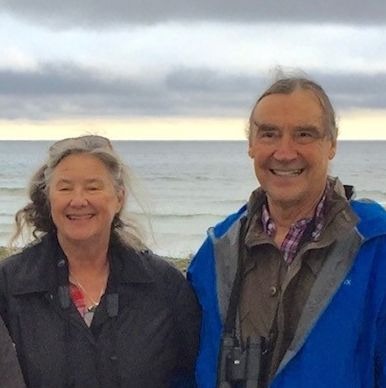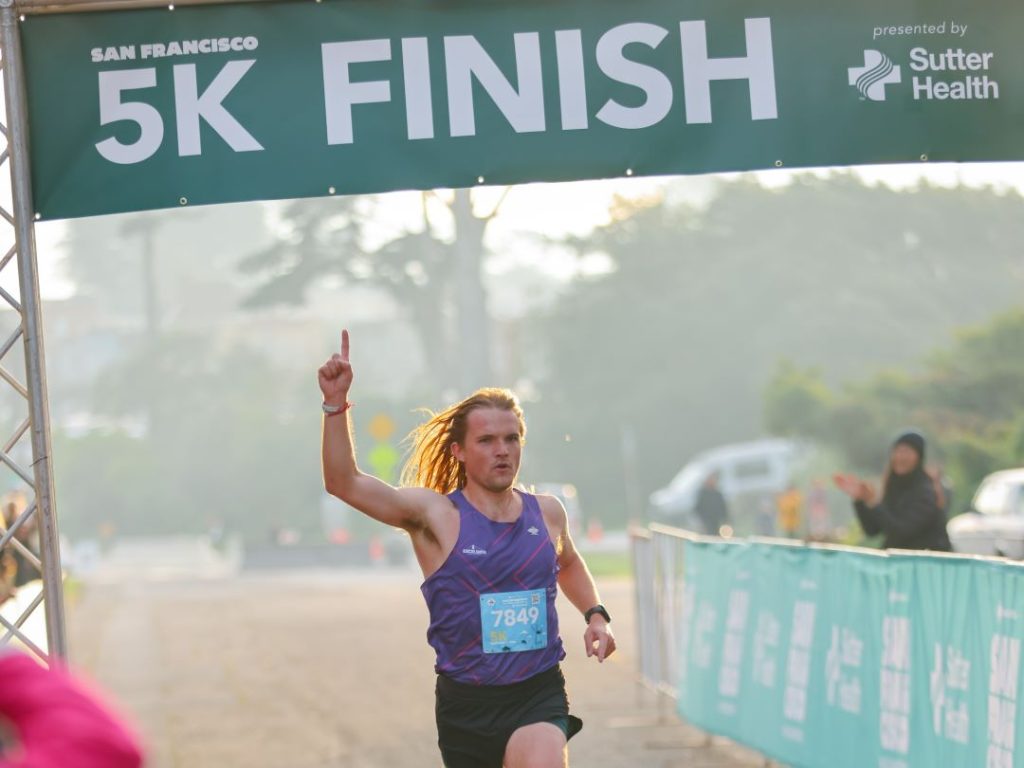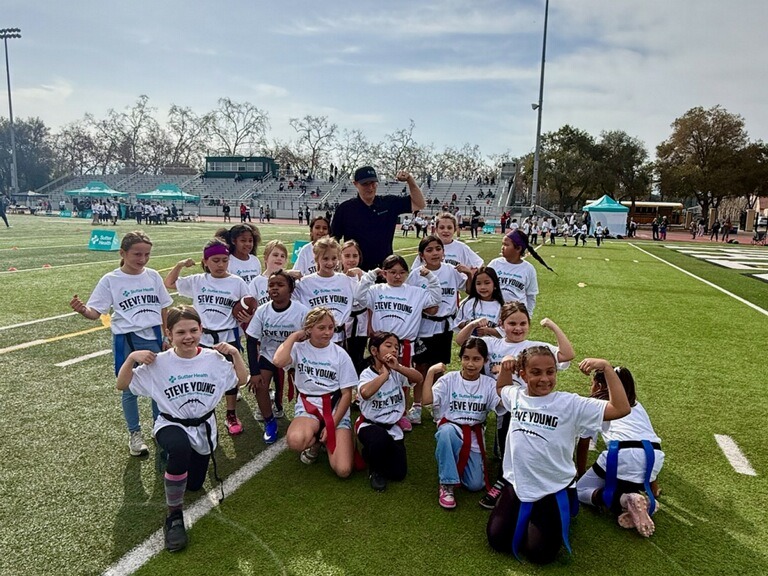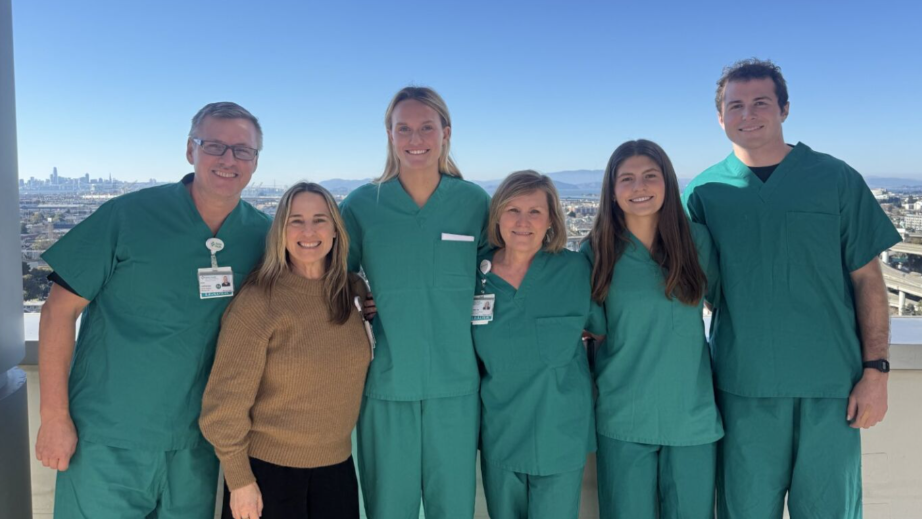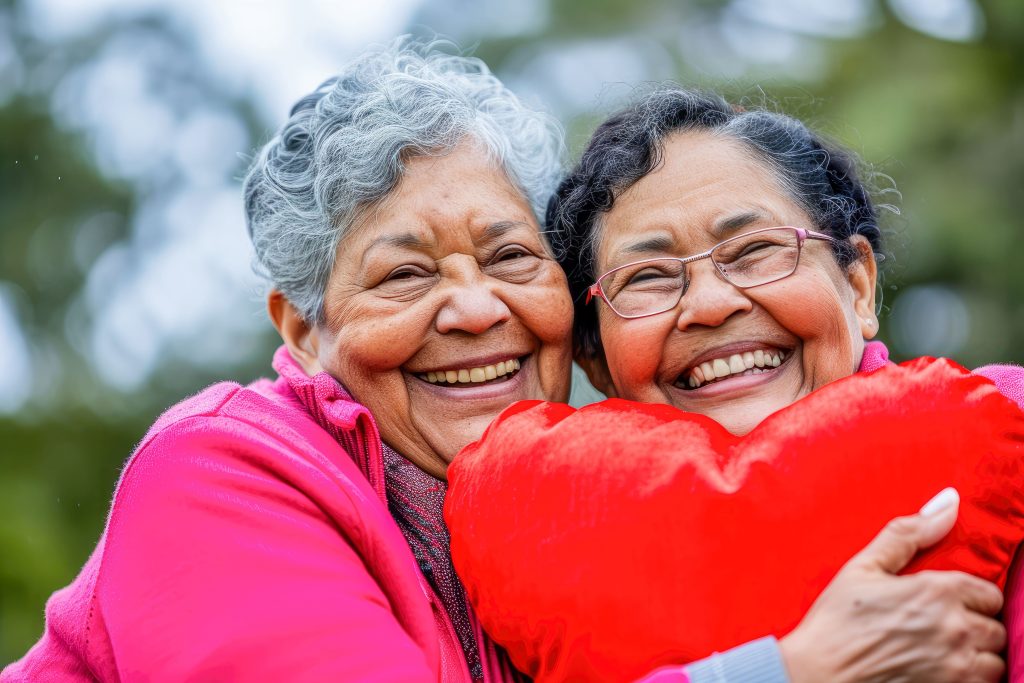Douglas spent a week in Glasgow, Scotland, visiting a longtime friend before heading to Cambridge, England, for several days and then making the trek to London. He returned home to Winters, a small town in rural Yolo County, on March 16. He started to feel unwell a few days after returning, plagued by headaches and fatigue. After consulting with his physician, Carla Kakutani, M.D., Douglas visited an urgent care clinic where his flu test came back negative. His symptoms took a turn for the worse in the days ahead. The 68 year-old felt disoriented. Shaking with chills one moment, his temperature ratcheting up to 103 degrees the next. On March 30, he came to Sutter Davis Hospital’s emergency department and was eventually admitted.
For Douglas, his recollection of the journey pauses here for a moment. His exhaustion, coupled with the eventual sedation he went under in the intensive care unit, suspends time for him. But Myers picks up the tale – albeit secondhand. She wasn’t allowed to be with Douglas in the hospital because of the visitor limitations in place to limit the spread of coronavirus and protect patients and staff. Conversations with emergency department staff, and Carly Grovhoug, M.D., Myers’ primary care doctor, who works closely with Dr. Kakutani, act like the mile markers toward an unknown destination.
But the path eventually became clearer. The Sutter Davis ICU team was always responsive to her calls any time of the day to check on his status. Social worker Katie Tenerelli was also a “godsend” according to Myers.
“She talked through a lot of things with me, told me what he looked like,” she said.
Myers was eventually able to see him firsthand through the power of video visits with the help of staff as well. Initially, since Douglas was on a ventilator, verbal communication was limited at best.
“He could hear me, but he was out of it. I’d say, ‘Garry, open your eyes,” she said with a laugh.
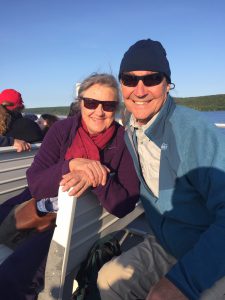
By the end of the second week, Douglas’ condition improved. He was growing more alert and eventually was removed from the ventilator. He always considered himself relatively healthy and active. But now his activity was limited to “belly band” exercises. Technically known as high-frequency chest wall oscillation, the procedure helps improve lung function. While connected to an airway clearance device, Douglas laid on his back with an elastic band around his abdomen that vibrated 25 minutes at a time. There were also the short-distance field trips—within his room—from the bed to the chair and back again.
“I was a total weakling since I hadn’t moved in two weeks,” he said.
But Douglas was moved by how the thoughtful gestures of Sutter Davis’ ICU staff continued. From the simplest acts of grabbing him coffee to hanging up photos from he and Myers’ wedding or some from their travels made him feel more comfortable, more at home.
Once Douglas was healthy and strong enough to go home, the entire Sutter Davis Hospital team pulled out all the stops. From the second floor on down to the first, through the lobby and even out the hospital’s main entrance, employees lined up for what seemed like miles to applaud his recovery and wish him well.
Douglas was taking his own victory lap to the cheers of adoring fans. It was a salute suited for a hero. And in the eyes of the Sutter Davis team, he was. At this unprecedented time with a lot of unknowns and unpredictability with the virus, he was just as much of a symbol of hope and perseverance to them as they had been for him.
Douglas and Myers are back at home now, adjusting to the new normal. Douglas had a fairly detailed after-care plan that included a home health care nurse and physical therapy visits twice a week coordinated through Sutter Care at Home. Plus, he had a series of other medications and vitamins to take. He is making progress every day and relishes the comforts of home, but reflects back fondly on those he met at Sutter Davis Hospital throughout this uncharted territory of COVID-19.
“It was such a good feeling…to me it just showed how caring they were,” he said.

